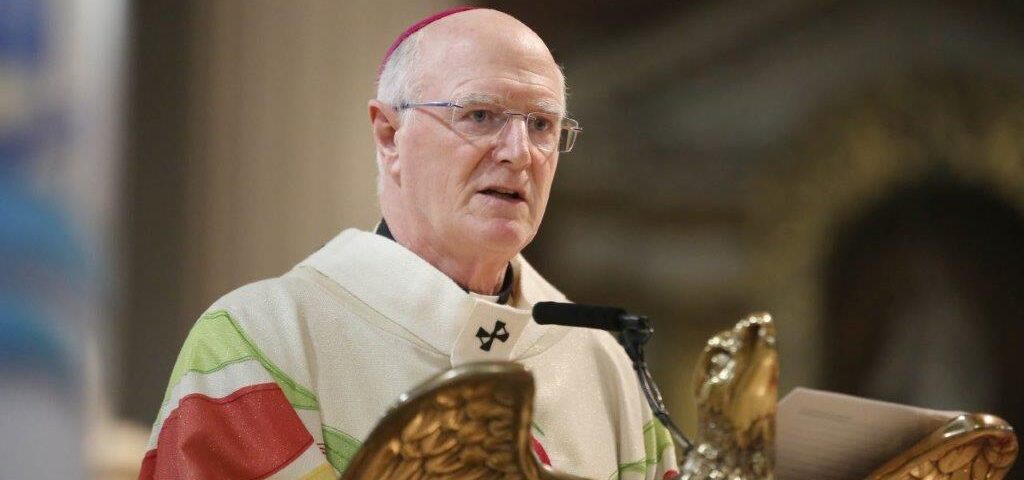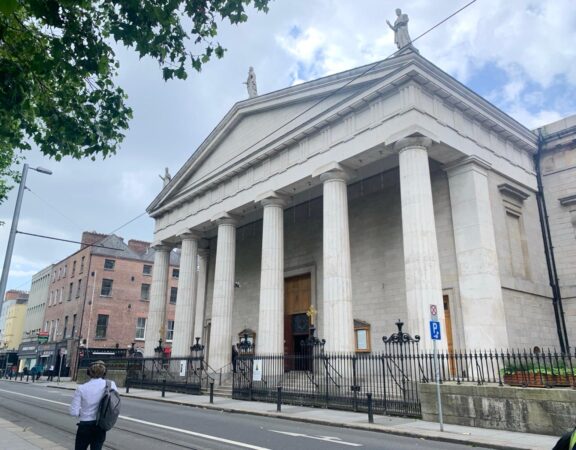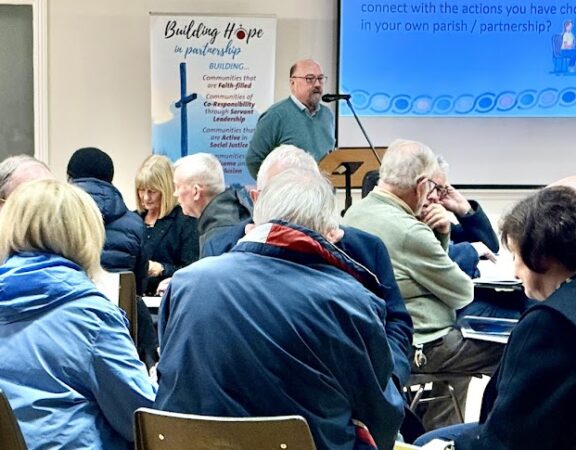Mass for Families of “Justice for the Forgotten”
50th Anniversary of the Dublin and Monaghan Bombings
May 17, 2023
St Mary’s Pro-Cathedral
Patrick Askin; Josie Bradley; Marie Butler; Anne Byrne; Thomas Campbell; Simone Chetrit; Thomas Croarkin; John Dargle; Concepta Dempsey; Colette Doherty; Baby Doherty; Patrick Fay; Elizabeth Fitzgerald; Breda Bernadette Grace; Archie Harper; Antonio Magliocco; May McKenna; Anne Marren; Anna Massey; Dorothy Morris; John, Anna, Jacqueline & Anne-Marie O’Brien; Christina O’Loughlin; Baby Martha O’Neill; Edward John O’Neill; Marie Phelan; Siobhán Roice; Maureen Shields; Jack Travers; Breda Turner; John Walsh; Peggy White; George Williamson.
We call out these names; your relatives, members of your families, friends and neighbours, acquaintances, old and young. We call out the names of people precious to you, lives cut short, and for Baby Doherty, a life that never even got to see the light of day. Hopes destroyed, love and longing taken away from those for whom it was created.
We call out their names. We name our loss. They are not forgotten. We remember.
What it means to remember • Memory Makes Us Who we Are!
Remembering lies at the heart of our human existence, and remembering lies at the heart of our faith. Our act of remembrance today is at the heart of our existence as human beings, and at the heart of our existence as people of faith.
Our awareness of who and what we are—what we call our identity—is shaped not only by the things that happen(ed) to us, but by how we remember those things.
How do we remember?
It is on “how we remember” that I wish to spend some time this morning.
First of all, to come to church, to remember in Church, is to remember in a particular way. In recent days, significant attention has been given to this remembering. In the Oireachtas this week we witnessed the unanimous acknowledgement of the deep pain that has been carried for so long and still waits to be resolved; the newspapers carried dedicated articles and the personal accounts of survivors; there were moving radio interviews, and a documentary “the Forgotten.”
However, to gather in this place is to gather in another context, and with another horizon. It is to gather in the context of God and of Jesus, his Son whom he sent to be with us. This is the God who said, “Even if these forget, I will not forget you, my people.” “I have carved you in the palm of my hand.” (Isa 49:15-16) Our God is a God who remembers; our God is a God who doesn’t forget. Our God is a faithful God, faithful to what he began when he created us. God’s remembering is not some series of divine thoughts. No, when God “remembers,” God is involved.
To gather here is to gather with another, broader horizon. It is the horizon of what our lives, all our lives, the life of each one of us, is about. To gather here, is to remember in another key. It is not to deny other gatherings, or other “rememberings,” but it is to remember in a very particular way. It is to name our loss in a particular way, it is to seek consolation and strength in a particular way, and it is to discover hope, and peace which follows from hope, in a particular way.
Remembering in A Christian Perspective—Who We Remember, What We Remember
Just like our lives, our faith is built on remembering. You don’t need me to tell you that the words, “Do this in memory of me!” are central words in the way we talk about who Jesus is, and in the way we think about him, and even in how we might wonder how about what Christ asks of us.
Remembering Jesus is not only remembering that he was, but how he was, how he was in deed and in word. In deed—that he came to be with us, and that he gave himself for us. In word—in what he told us about God and about ourselves. Part of being a Christian is remembering Jesus, and remembering how he was with us. This the Jesus who asks us to go the second mile, to turn the other cheek (Matt 5:39–41). This is the Jesus who in today’s Gospel asks us that, “if we remember that our brother or sister has something against us, that we leave our gift there before the altar and go; first be reconciled …, and then come and offer our gift. (Matt 5:23–24)
This does not mean forgetting what happened in Talbot Street and beyond. The true cost of “the Troubles” is rarely counted by those who longed for victory: the lives lost, the families destroyed, the wounds—social and emotional, the barriers built, the cultural and social impoverishment, the smaller worlds, the isolation, a world turned in on itself—at all levels—over many generations. Is this the heritage we wish to give to our children? Do they not deserve more? Better opportunities than we had?
“Do this in memory of me!” is not just, “Breaking the Bread,” or, acting in service. It is radically to seek reconciliation with the other. That is no easy path. Seeking reconciliation with the one who has injured us so deeply is no easy path. But for Christ it is the path to life, to ourselves, and to God.
Travelling the Road of Memory
You have travelled this road a long time. Like every real road, like every real journey, things are not linear. Life is not a one-way track. But in this long meandering, we grow and we mature. If we travel well, and that means travelling with each other, we grow, we become ourselves. We mature, with and through each other.
For the person of faith, that journey towards maturity is a journey with the faithful God and his faithful, reliable Son. Journey with him, remembering him, remembering his words, will change how we are, and who we become. Many of you have travelled not only seeking justice for the forgotten, but you have travelled with each other, and were shaped by each other. The people we travel with, those we journey with through life, shape us more than we can imagine. I pray today that we might journey with Christ and journeying with him we might be shaped by him and remember our loss in a way that softens our hearts, and brings us to life.
May we find in Christ a faithful friend (see Sirach 6), a reliable companion, someone who will help us to remember anew. May He be leaven for our action, light for our path, a sure guide in negotiating our loss and in striving for a future which can move beyond saying “No,” or telling those truly our sisters and brothers to “go back to where they came from.”
Remembering has not achieved its end when we erect our memorials; that is but the beginning. Remembering is part of becoming who we truly are. When we remember well are drawn closer to each other and to God (see Pope Francis, Message after World Youth Day, Lisbon, 13th September 2023). In that way, our lives and the way we live them become a living memorial to those we have lost; with God’s grace a signpost for the life God wants for all his creatures (see 1 Pet 2:4-5).
So when you are offering your gift at the altar, and there remember that he has something against you, leave your gift there before the altar and go, first be reconciled to your sister or brother, and then come and offer your gift. (Matt 5:23–24). May the Lord, who was himself the victim of violence and degradation, “guide our feet on the way of peace.” (Luke 1:79)
+Dermot Farrell
Archbishop of Dublin








